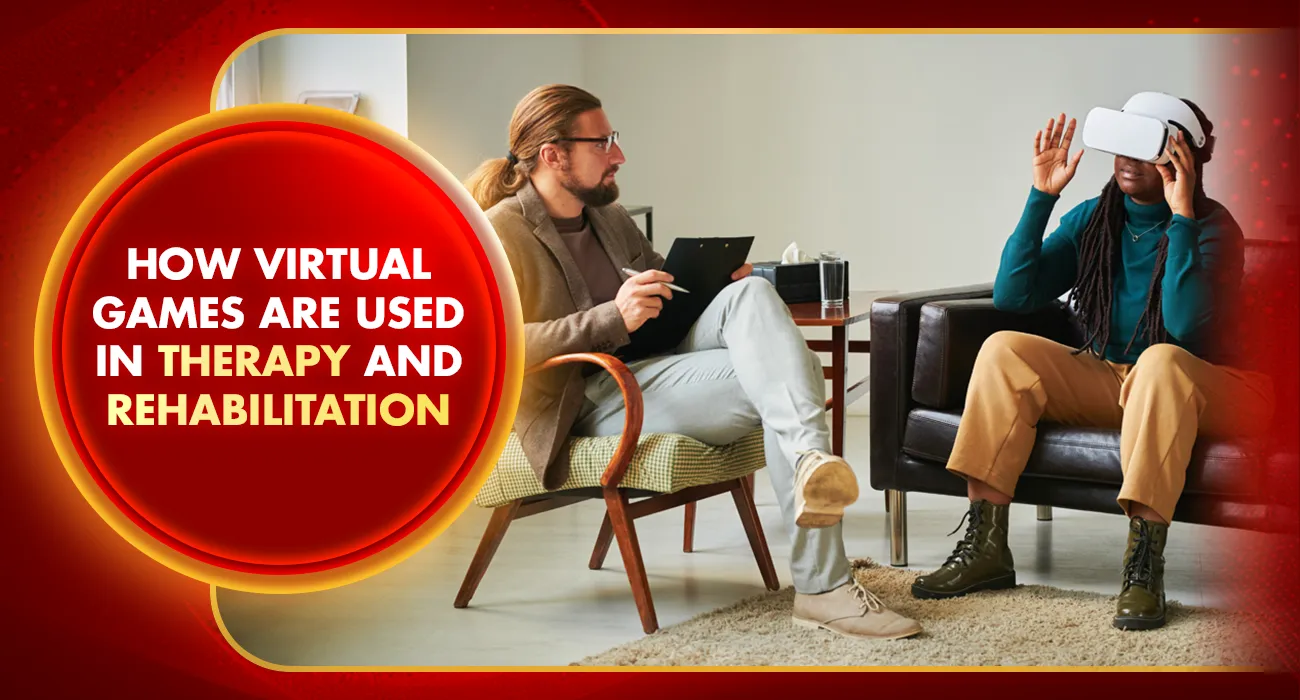Virtual games, for the last decades, have been revolutionary tools in treatment and rehabilitation. Technology’s integration with practice has enabled therapists to introduce new avenues for treatment and has also ensured that sessions are interactive yet efficient for patients. This blog post discusses the way virtual games are being used in different settings and how beneficial they are.
The Evolution of Virtual Games in Therapy
Virtual games, also known as serious games, are built for purposes other than mere entertainment. Instead, they are meant to serve some therapeutic objectives. They present an immersive environment in which the patients can engage in their own activities, leading to healing, skill development, and a feeling of emotional well-being. The interactive nature of these games makes them appealing: Patients can be encouraged to actively participate in their treatment due to the interaction with the game.
Physical Rehabilitation
Virtual games have been remarkably successful in the area of physical rehabilitation. Physical therapists may combine motion-sensing technology to develop games requiring specific movements. In the example of a patient recovering from an injury to the knee, a suitable game for this patient could be one where they stretch to get hold of objects or squat to get points. This not only makes rehabilitation more fun but also brings about compliance with exercise regimes by patients. There is clear evidence of research that shows that patients participating in virtual games recover relatively faster than traditional methods of therapy.
Cognitive Rehabilitation
Virtual games have much to do with cognitive rehabilitation. For people who have been suffering from strokes, traumatic brain injuries, and cognitive disabilities, such games will help their memory, attention, and solutions to problems. Techniques that enhance cognitive function and neuroplasticity include making the patient engage in challenging situations entertainingly. Games such as puzzle-based games or just a typical maze game can allow for the building of skills in cognitive abilities but in an entertaining process rather than engaging in a more direct exercise.
Mental Health Support
In addition to physical and cognitive rehabilitation, virtual games are now used much more widely for mental support. This is because virtual games enable an immersive environment in which individuals can freely feel and permit the expression of emotions while being confronted with their anxiety. For instance, social interaction games provided to people suffering from social anxiety can help a person practice his or her skills in a less intimidating manner. In addition, VR therapy has been identified in its application to be an effective method of exposing patients to controlled environments in which they can confront phobias or practice relaxation techniques.
Virtual Games for Office Well-being
In addition to the health center, virtual games at the workplace are being used to enhance employee well-being. Office virtual games may promote team membership, reduce stress, and improve mental agility. Virtual escape rooms or cooperative challenges used in interactive team-building activities develop effective communication and collaboration for a more cohesive working environment. This is especially invaluable in today’s world, where most people work remotely.
Because of the rapid advancement of technology, virtual games in therapy and rehabilitation will probably reach even greater heights. Patients are attracted, improvements are brought about, and mental well-being is assisted all because of virtual games. It forms a powerful tool for many different kinds of therapeutic contexts, whether clinical or in the workplace. Organizations like Khelraja are the pioneering forces behind unleashing these technologies in new ways, including the integration of games in therapy and other employee well-being initiatives. This will unlock more effective and enjoyable therapeutic experiences that will improve the quality of life for many.
Also read: Virtual Games and Science of Immersion: What Makes these games Engaging in 2025





